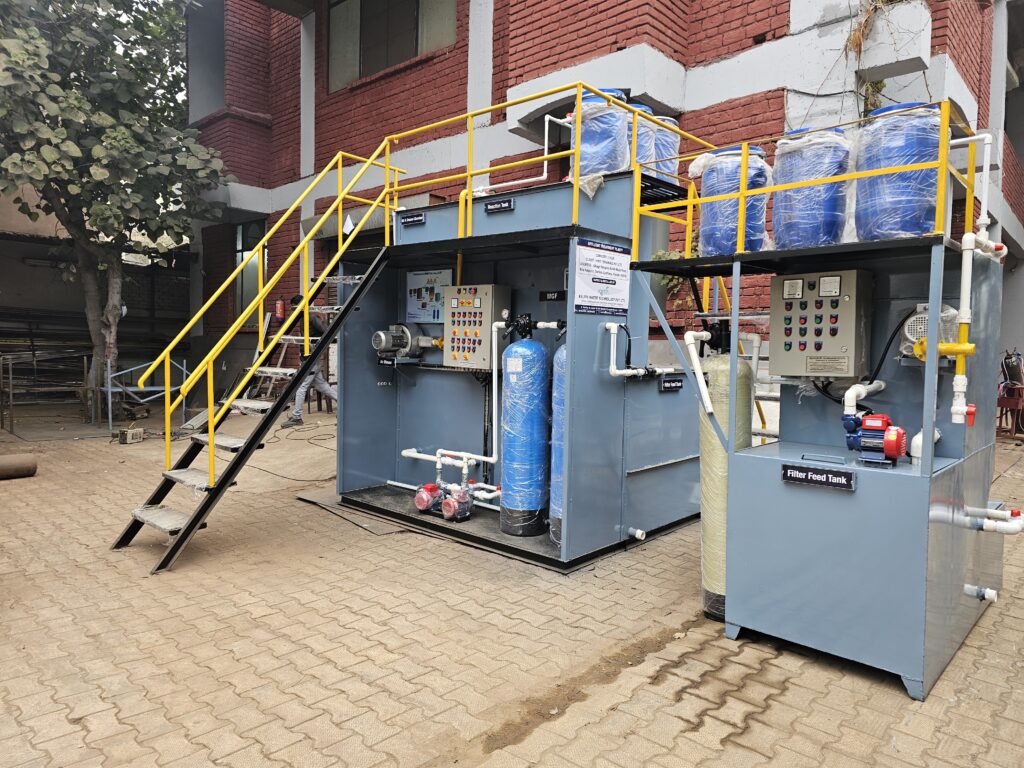Why Effluent Treatment Plant is Important for Industries?

Effluent Treatment Plant are crucial for industries due to their role in environmental protection, regulatory compliance, and sustainable resource management. This essay delves into the significance of ETPs, discussing their functions, benefits, and importance in ensuring a cleaner, safer, and more sustainable industrial landscape.
Introduction to Effluent Treatment Plants
Effluent refers to wastewater or liquid waste discharged from industrial processes. This wastewater often contains harmful pollutants, chemicals, and contaminants that can pose serious threats to the environment, public health, and natural ecosystems if not properly treated before discharge. Effluent Treatment Plants (ETPs) are designed to mitigate these risks by treating industrial wastewater to remove or neutralize pollutants before it is released into the environment.
Importance of ETPs for Industries
Environmental Protection
One of the primary reasons ETPs are essential for industries is environmental protection. Untreated effluents can contain a range of pollutants, such as heavy metals, organic compounds, and toxic chemicals. Discharging such untreated wastewater directly into water bodies can lead to water pollution, harming aquatic life, degrading water quality, and disrupting ecosystems. ETPs play a crucial role in reducing these harmful impacts by treating effluents to meet regulatory standards before discharge.
Compliance with Regulations
Governments worldwide have stringent regulations and standards concerning industrial wastewater discharge. ETPs are necessary for industries to comply with these regulations and obtain necessary permits for operation. Failure to meet regulatory requirements can result in fines, legal penalties, and damage to a company’s reputation. Thus, investing in ETPs is not just an environmental responsibility but also a legal obligation for industries.
Resource Conservation
ETPs contribute to resource conservation by enabling the recovery and reuse of water and valuable resources from wastewater. Many industrial processes use significant amounts of water, and treating wastewater through ETPs allows industries to recycle and reuse water, reducing their overall water consumption and conserving freshwater resources. Additionally, ETPs can facilitate the recovery of valuable by-products or materials from wastewater, promoting resource efficiency and sustainability.
Public Health and Safety
Untreated industrial effluents can contain hazardous substances that pose risks to public health and safety. For example, chemicals and heavy metals in wastewater can contaminate drinking water sources, leading to health problems and potential outbreaks of waterborne diseases. ETPs help mitigate these risks by treating effluents to remove or neutralize harmful pollutants, ensuring that discharged water is safe for the environment and human consumption.
Corporate Responsibility and Reputation
In today’s environmentally conscious world, corporate responsibility and sustainability are integral to a company’s reputation and brand image. Investing in ETPs demonstrates a company’s commitment to environmental stewardship, sustainable practices, and community well-being. It enhances corporate reputation, fosters trust among stakeholders, and can attract environmentally conscious consumers and investors.
Long-term Cost Savings
While operating ETPs requires initial investment and operational costs, they can lead to long-term cost savings for industries. Treating wastewater onsite through ETPs reduces reliance on external wastewater treatment services, thereby lowering operational expenses. Additionally, by conserving water and resources, ETPs contribute to overall cost efficiency and sustainability in the long run.
Regulatory Advantages and Market Access
Compliance with environmental regulations and standards through effective ETPs can provide industries with regulatory advantages, such as preferential treatment, tax incentives, or access to new markets. Many consumers and businesses prioritize working with environmentally responsible partners, giving compliant industries a competitive edge and opening doors to broader market opportunities.
Components and Processes in Effluent Treatment Plants
ETPs employ various components and processes to treat industrial wastewater effectively. Some common components and processes include:
- Preliminary Treatment: This stage involves the removal of large solids and debris from wastewater through processes like screening and sedimentation.
- Primary Treatment: In primary treatment, suspended solids and organic matter are removed from wastewater using physical processes.
- Secondary Treatment: Secondary treatment targets dissolved and biodegradable organic pollutants through biological processes like activated sludge.
- Tertiary Treatment: Tertiary treatment focuses on further polishing the effluent to remove residual contaminants, nutrients, and pathogens. Processes like filtration, chemical precipitation, and advanced oxidation are commonly used in tertiary treatment.
- Disinfection: Disinfection is the final step that involves the elimination of pathogens and microorganisms from the treated effluent, usually achieved through chlorination, UV irradiation, or ozonation.
Conclusion
Effluent Treatment Plant is indispensable for industries seeking to operate responsibly, sustainably, and in compliance with environmental regulations. They play a vital role in protecting the environment, conserving resources, ensuring public health and safety, and enhancing corporate reputation. Investing in ETPs not only fulfils legal obligations but also brings long-term benefits such as cost savings, market advantages, and a positive environmental impact. As industries continue to prioritize sustainability and environmental stewardship, the importance of ETPs will only grow, driving innovation and best practices in wastewater treatment technologies.